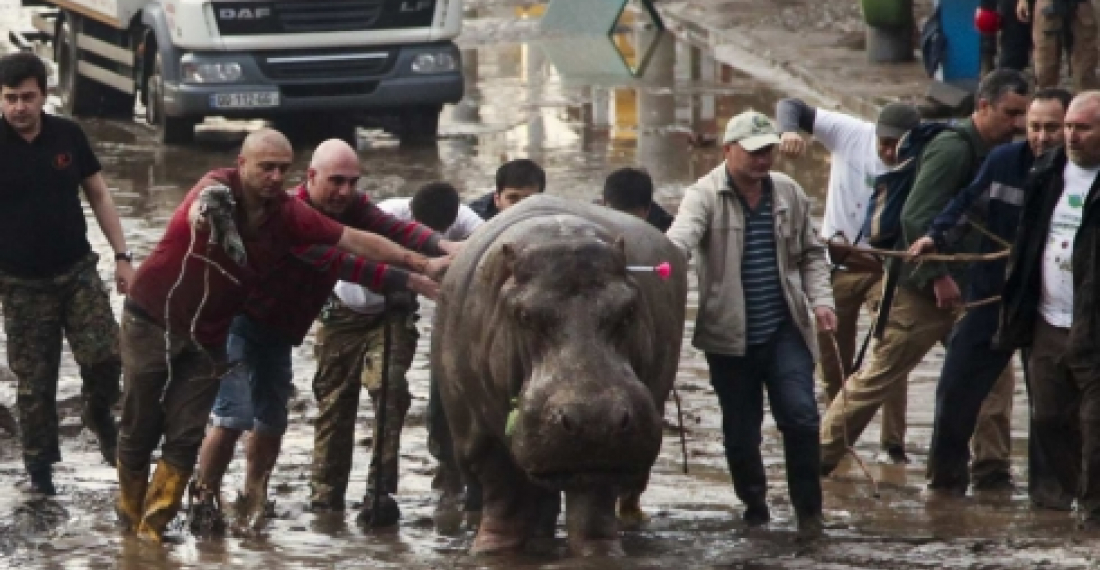One year has passed since the Tbilisi floods, which killed over 20 people and left many more homeless. To mark the occasion, one of the streets in Saburtalo district will be named after Zurab Muzashvili, who died rescuing seven people. Tbilisi Mayor Davit Narmania will attend the ceremony.
Heavy rain began on June 13 2015, and carried on for many hours. A landslide in a village outside Tbilisi dammed the Vere river, causing severe flooding in the centre of the capital.
Tbilisi zoo was badly flooded, and 300 of its animals were lost. Most died, but a few, including a hippopotamus, bears, wolves and a tiger, escaped and were roaming the streets before being killed or captured by police. One man was killed by a white tiger.
On top of the 21 confirmed deaths and two who are still missing, many more people were badly injured. The Georgian government gave an initial estimate of flood damage at 100 million GEL.
Poor urban planning and inadequate drainage of the Vere river have been blamed for the scale of the damage, while others have said climate change makes these kinds of extreme weather events more likely.
SOURCE: commonspace.eu and agencies.
PHOTO: A hippopotomus escaped from Tbilisi zoo






